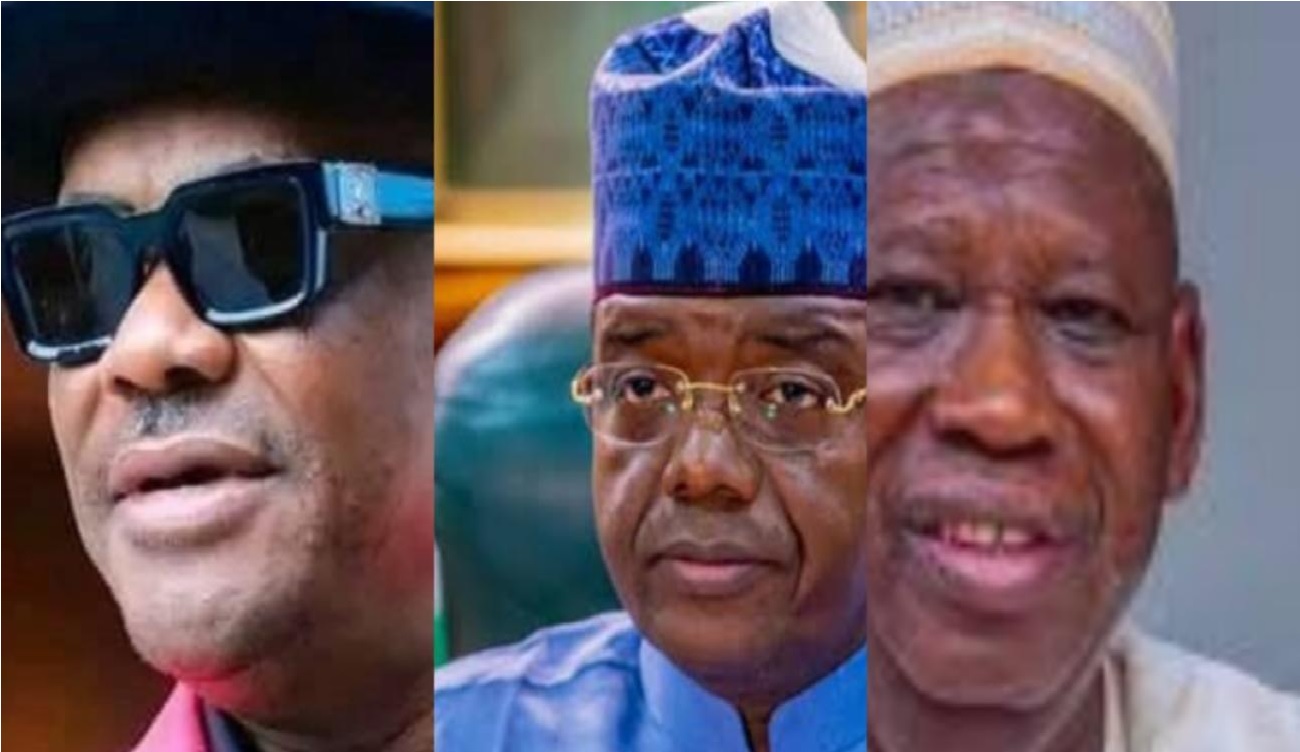Three serving governors; Nyesom Wike of Rivers State, Bello Matawalle of Zamfara State and Abdullahi Ganduje of Kano State reportedly discovered billions of Naira in cash stashed in their houses, Sahara Reporters disclosed.
Newsflash Nigeria had earlier reported that the operatives of the Economic and Financial Crimes Commission (EFCC) have discovered billions of Naira in cash stashed in various houses of some serving governors following the announcement by the Central Bank of Nigeria (CBN) that it will redesign some naira notes.
According to the anti-graft agency said at least three serving governors hoarded billions of naira in various houses.
Recall that the CBN Governor, Godwin Emefiele, had announced that the commission will redesign N200, N500 and N1000 notes.
Emefiele said the new design and issues will be effective from December 2022.
He advised Nigerians to take old notes to banks for the new notes.
The CBN under Emefiele had been lately accused of corruption, policy somersault and failure to address the most fundamental fiscal challenges of the country.
However, the EFCC Chairman, Abdulrasheed Bawa, in an interview with Daily Trust on Thursday, said the governors are planning to pay salaries with the stashed cash as a way of laundering the money through a cash payment of salaries.
Bawa said in the interview that the commission’s recent raids on Bureau De Change operators would be sustained until the old naira notes have been mopped from the system.
He stressed that any cash transaction beyond five million naira is a crime.
“Already, some state governors have some of this cash stashed in various houses and the rest are now trying to pay salaries in cash in their states.
“I don’t know how they want to achieve that but we have to stop them from doing that. Well, we are working, they have not paid the salaries in cash yet but it is a very serious thing,” he said.
Multiple sources on Friday identified the governors as Nyesom Wike of Rivers State, Bello Matawalle of Zamfara State and Abdullahi Ganduje of Kano State, in exclusive interviews with SaharaReporters.
However, the mad rush by top politicians, traders, investors and other members of the public to cut corners and convert stashed funds into dollars, property and others, has created tension in the economy.
Bawa in an interview with Daily Trust said that some governors were devising means to launder the money they stashed in houses. He added that so far, the commission was closely monitoring three of them.
He said intelligence at the disposal of the commission showed that the three governors had concluded plans to inject the money into the system through the payment of workers’ salaries.
While the EFCC boss refused to disclose the identity of the three governors, multiple sources in the anti-graft agency identified them as Governors Wike, Ganduje and Matawalle of Rivers, Kano and Zamfara respectively to SaharaReporters.
“The three governors we are monitoring are Governors Wike, Matawalle and Kano’s Ganduje. Billions of naira stashed in their homes in Abuja, Port Harcourt and Kano have been discovered,” a top EFCC official told SaharaReporters.
“These three state governors were caught trying to move these huge sums of notes kept in their residences after the CBN announced its decision to redesign the naira notes.
“They are in billions; that of Ganduje is purely kept in Kano but he has used some parts to pay for a hotel he’s building in Abuja. The hotel is at the back of the Nigerian Air Force Conference Centre.”
“Zamfara governor, Matawalle kept his own in some houses he owns in Abuja while Wike has his own kept in Abuja and Port Harcourt,” one of the sources said.
In 2018, two videos of Ganduje allegedly receiving kickbacks from contractors trended on social media.
The videos published by Daily Nigerian, an online newspaper, showed the governor receiving bundles of dollars and putting them into his flowing dress known as ‘babanriga’ in the northern part of Nigeria.
The governor had reportedly requested $5 million from the contractors who recorded the video while handing part of the payment to him.
In one of the videos, the governor appeared to have received $230,000, which he hastily stashed in his ‘babanriga,’ a flowing dress common in northern Nigeria.
Source: Sahara Reporters
